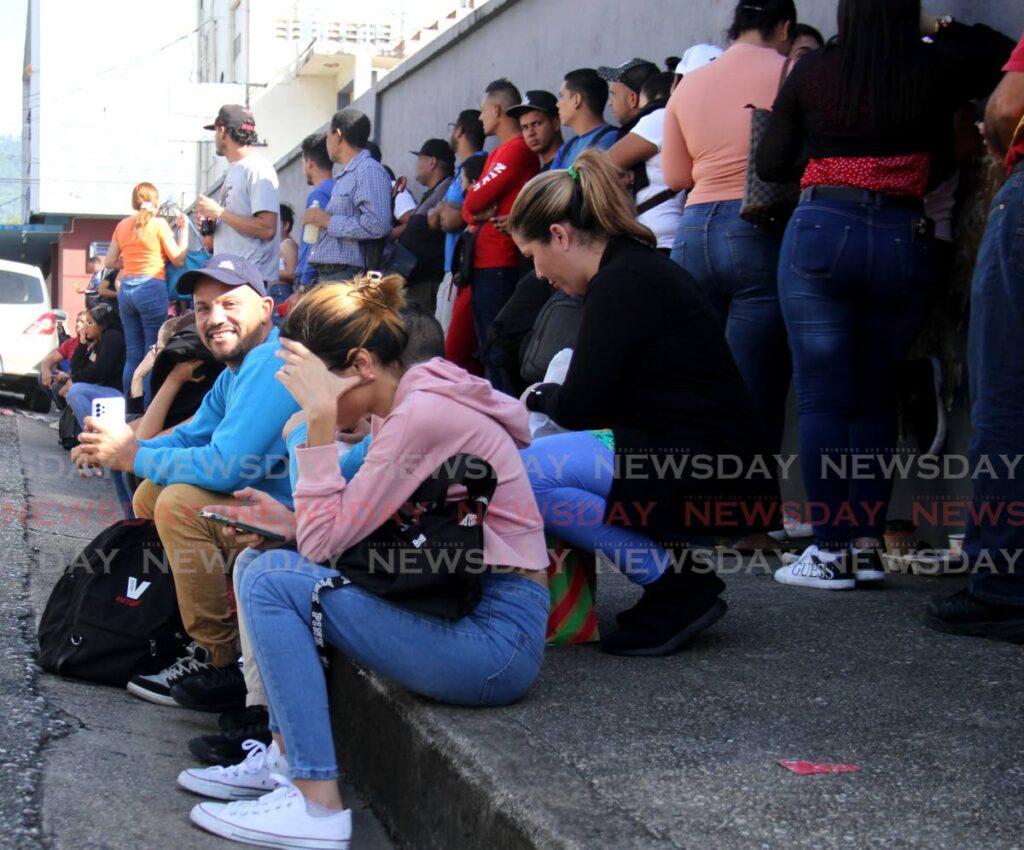Time to take a position on Venezuelan migrants

It's beyond absurd that thousands of Venezuelans have been asked to live in limbo for three months without work permits.
In mid-January, National Security Minister Fitzgerald Hinds announced that the permits would be extended again, but now migrants are losing their jobs because the formal documentation that authorises them to work here legally expired on January 1.
It's been a hallmark of the government's approach to managing the influx of Venezuelan migrants to engage in bureaucratic foot-dragging on critical matters, defaulting to a passive-aggressive stance on the issue of the migrant presence in the country.
Trinidad and Tobago is a signatory to UN agreements on migration, and approved a refugee policy, the National Policy to Address Refugee and Asylum Matters in 2014.
Facing the reality of tens of thousands of desperate refugees flowing into the country from Venezuela, the state has largely taken the position that it will fulfil its obligations without any evident enthusiasm for urgency.
This country is now in its fifth year of hosting Venezuelan migrants and the process remains as ad hoc and disorganised as it was when the earliest boatloads of refugees landed on the south-western coast of the islands, desperate for a second chance at building a home.
The Court of Appeal has called for a more humanitarian approach to the forced deportation of migrants. A group of 160 migrants was deported in November 2020 while their matter was before the courts.
To meet the social challenge, the Catholic Church, the Living Water Community and other NGOs stepped up their operations to engage refugee families in need.
The UN established a local Network on Migration in October 2022 to assist this country in managing its responsibilities under the Global Compact for Safe, Orderly and Regular Migration Practices.
Those principles remain at significant distance from some of the more outrageous instances of migrant misadventure that are within state control and might have been more effectively governed through the establishment of clearer policy decisions and directives.
The Coast Guard mishandling of the interdiction of a migrant boat on a Saturday night in February 2022 led to the shooting death of one-year-old Ya Elvis Santoyo.
That incident stands at the nadir of possible outcomes for desperate refugees, but the challenges most face are varied, frustrating and well within the scope of the government to address.
In July 2021, 700 sick or jobless refugees faced the Hobson's choice to return to Venezuela to sit out the covid19 pandemic.
This week's claims by migrants that they are being denied visas by the TT embassy in Caracas appears to continue the government's laissez-faire approach to the very real human needs of the migrant population we continue to host with the barest modicum of compassion.

Comments
"Time to take a position on Venezuelan migrants"